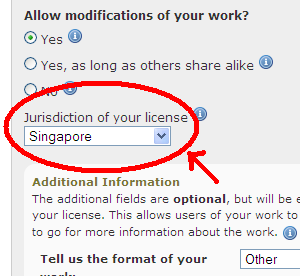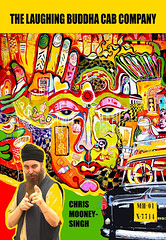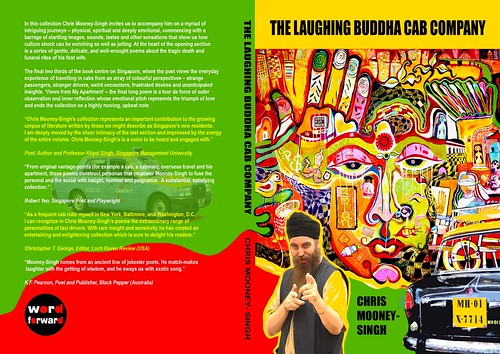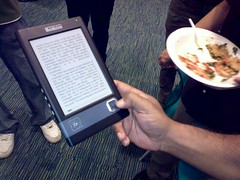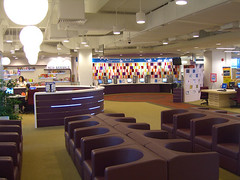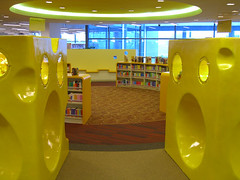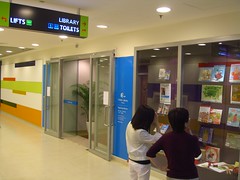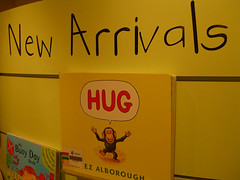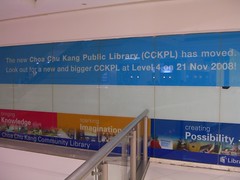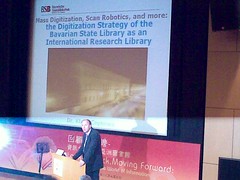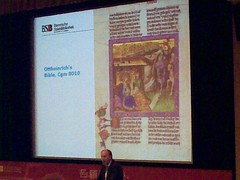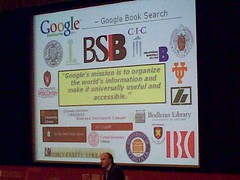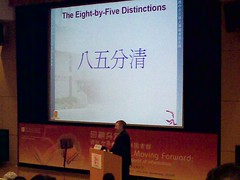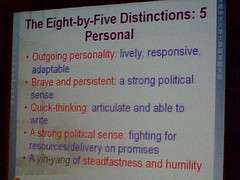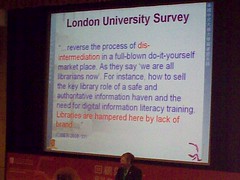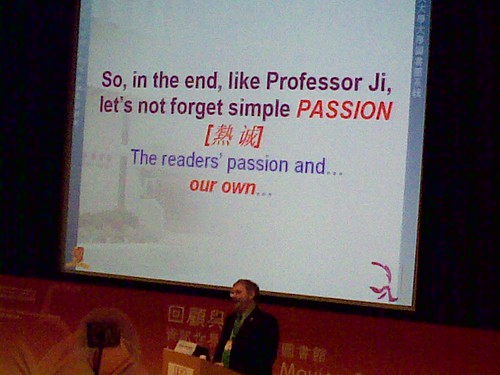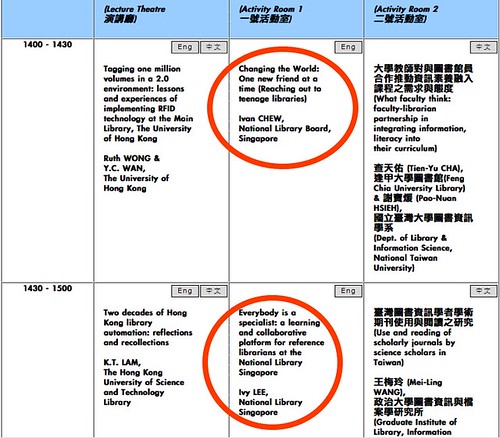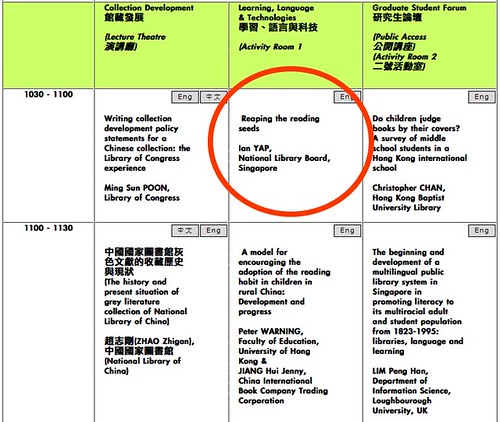[From
Part 1]
"Building a service culture in a major Asian academic library". Presented by Peter Edward Sidorko (Deputy University Librarian) & Esther Woo (Administrative Services Team Leader). The University of Hong Kong Libraries.
"This is not about technology. This is not about digitisation," said Peter (it's a wry sort of library humour, if you will).
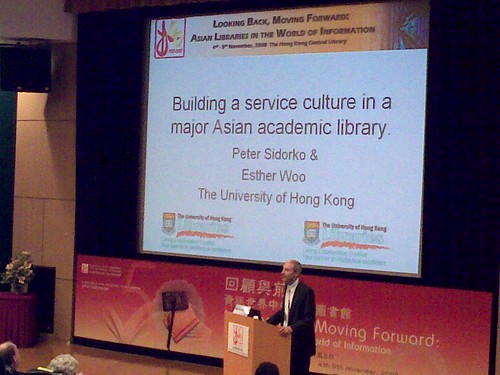
"No one escaped" in their quest to improve customer service ratings for their libraries. They targeted librarians to cleaners.
Mentioned global pressures as one reason for drive towards greater customer service improvement.
That, plus the results from their customer survey and feedback.
Their paper cited the "Service-profit Chain Model" (Haskett et al, 1994). The model is based on the premise that profit and growth is derived from customer satisfaction and loyalty. Which is in turn derived from a customer sense of value received, and the capability, productivity, satisfaction and loyalty of employees.
Peter, in his presentation, cited the BBC report (2005) on how
librarians suffered the most stress, compared to firefighers and the police (one reason being a lack of support structure for librarians to handle work stress).
In that light, HKU believes that "stressed librarians cannot provide good service".
They modified their organisation logo to reflect a consistent image to go with their new taglines relating to customer service.
Their main approach in improving their customer service levels:
- Clarify (internally) what is expected in terms of customer service levels (rather than assume all staff & management share the same view)
- Improve internal communication (they have 240 staff, considered big for academic libraries)
- Improve skills through formal and informal methods (they looked at interpersonal skills as well)
They developed three modules to address those areas:
- The Philosophy of Customer Service
- (3 Parts) Focusing on Library Customers/ Problem-solving Process/ Communication with Customers
- Internal Communication
Esther shared how they carried out their internal staff training programme.

They called it
Sharing Sessions rather than "training". One reasone was some staff, who were asked to conduct the internal training, had doubted if they were qualified enough to conduct training sessions per se.
[I wonder if they should have a formal "Trian-the-Internal-Trainer" programme, where their own staff become trained Trainers to champion service quality].
***
Some personal rambling reflectionsSeems to me HKU Libraries tried to look into the Process, Awareness and Attitude aspects. Of those three, "Attitude" seems the hardest to tackle, i.e. measure and address.
[note to self: email Peter and ask him about this]
I was also wondering how successful organisations influence staff to care about the quality of work.
Of course the word "care" was loaded with subjectivity. Also, it would be hard to measure, wouldn't it? How would you tell if one employee "cared more" that another?
Which led me to ask myself, "Are there any reliable indicators that employers can use or questions to ask, during the interview and recruitment phase, to better ascertain the candidate's attitude towards service quality?"
'Cos nothing beats addressing the problem at the start, I think.
Then I thought about "service channels".
For instance, are staff using the same channels available to external customers? Or do they use some other means not available to those outside the organisation?
If the answer to the latter is 'yes', it may be an indication of some areas for quality improvement.
So the long term objective would be to raise the level of the service (to external users) to become equal to the "special internal service", isn't it?
I think experienced librarians will tell you most customers will walk away satisfied when they feel the librarian has done their best, even if they do not get the information they are seeking.
Perhaps it's HOW you do it, as well as WHAT you deliver.
[Incidentally, I just read from
CNA that Singapore improves world ranking in customer service].
[Next:
Part 3]
